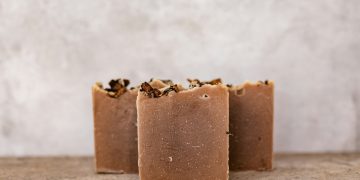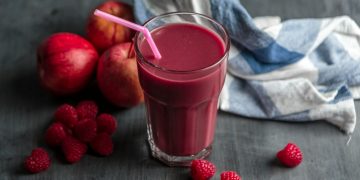
The ketogenic diet, or keto diet, is one of the prevalent trends around the globe among weight loss, health, health, and fitness enthusiasts. The keto diet, comprising low-carbohydrate, moderate-protein, and high-fat foods, offers numerous benefits, including weight loss and reducing one’s risk potential for some diseases.
During a keto diet, most calories come from proteins and fat instead of carbohydrates, which are easier to digest. As a result, your body goes into ketosis, a metabolic state wherein your body depends on fat or lean proteins for energy.
There are different versions of keto diets, including:
- Targeted keto diet: A type of diet that allows the consumption of additional carbs just before workouts.
- Standard keto diet: This involves the ratio of food types is 70% fat, 20% protein, and 10% carbohydrate.
- High protein keto diet: The food ratio in this type of diet is 60% fat, 35% protein, and 5% carbs.
- Cyclical keto diet: This involves taking short breaks from the dietary specifications. For instance, you can opt for five keto days and two high-carb days weekly.
Undesirable Effects Of The Keto Diet
Like most good things, the keto diet also has some drawbacks. Despite their apparent benefits, some of the risks linked with the diet include adding stress to your kidney, causing low blood sugar, and the possibility of developing nutrition deficiencies.
In addition, keto diets are also known to disrupt the concentration and composition of gut microbiomes leading to reduced access to beneficial fatty acids and increased inflammation.
Generally, a ketogenic diet reduces the number of carbohydrates consumed, even the healthy, unprocessed ones. On the other hand, it increases the number of good fats consumed and, sometimes, proteins. While this is tactical for anyone on a weight loss mission, the keto diet can make it difficult to tell the kind of nutrients required to maintain an active state of ketosis. And this is where probiotics on keto come in.
Probiotics On Keto
Probiotics are live microorganisms, including healthy bacteria and yeast, found in the gut and are linked to dozens of health benefits. Gut health is associated with one’s overall health, and probiotics can do wonders for your immune system.
Probiotics can provide a critical boost to your keto diet in the following ways:
- They can help support your weight loss journey by absorbing fat and making you feel fuller over an extended period.
- They can support your digestive health, an essential element of overall wellness.
- A healthy gut contributes to a healthier heart by lowering bad cholesterol and blood pressure.
- Good bacteria from probiotics contribute to a more robust immune system by suppressing the growth of harmful bacteria in the body.
Finding A Suitable Probiotic Option
As mentioned, keto diets can result in gut health issues, including constipation and tummy discomfort, because of changes in healthy gut bacteria levels. Therefore, probiotics like fermented foods are recommended while on a keto diet.
As a good start, consider adding the following rich sources of healthy gut bacteria into your keto diet:
- Fermented dairy products, including yogurt and kefir, are considered rich sources of probiotics. However, always check on sugar levels when choosing what to buy.
- Different cheeses such as Swiss, cheddar, and gouda, which have lactic acid bacteria, can be a good source of probiotics.
- Apple cider vinegar has a type of acid rich in probiotics and promotes gut health.
- Fermented vegetables like kimchi or sauerkraut provide significant levels of probiotics.
However, there’s no guarantee that all fermented foods contain sufficient probiotics because different production processes, including pasteurization and cooking under high heat, kill beneficial bacteria.
Further, the human stomach doesn’t provide a favorable environment for probiotics. So, there’s a likelihood that only a tiny portion of probiotics reaches the intestines while on a keto diet. As such, to enhance your overall wellness, taking probiotic supplements can help.
When looking for probiotic supplements, ensure that your food and public health governing agency has passed the supplements you choose. It’s also best to consider probiotics made using high-quality natural ingredients without artificial additives.
Final Words
Taking probiotics while on a keto diet can give your body a healthy balance by increasing the presence of good bacteria lost while consuming a low-carb diet. Adding foods high in probiotics, like yogurt, kimchi, and kombucha, can be a good way to do this. However, supplements can be a healthy alternative if you cannot boost your beneficial gut bacteria through probiotic-rich foods. However, get your probiotic supplements from a registered business that only sells certified products.
Moreover, talk to your physician before starting a keto diet to get proper guidance and assistance for your health and wellness journey.
























